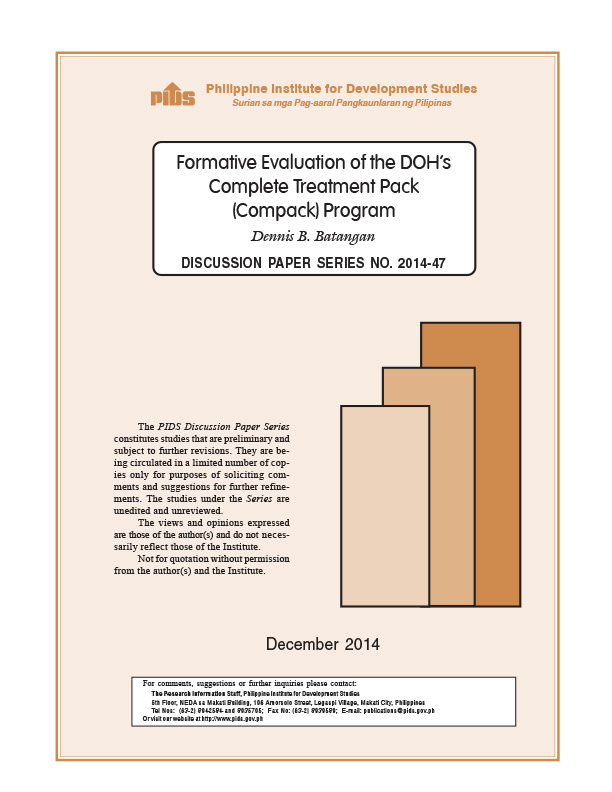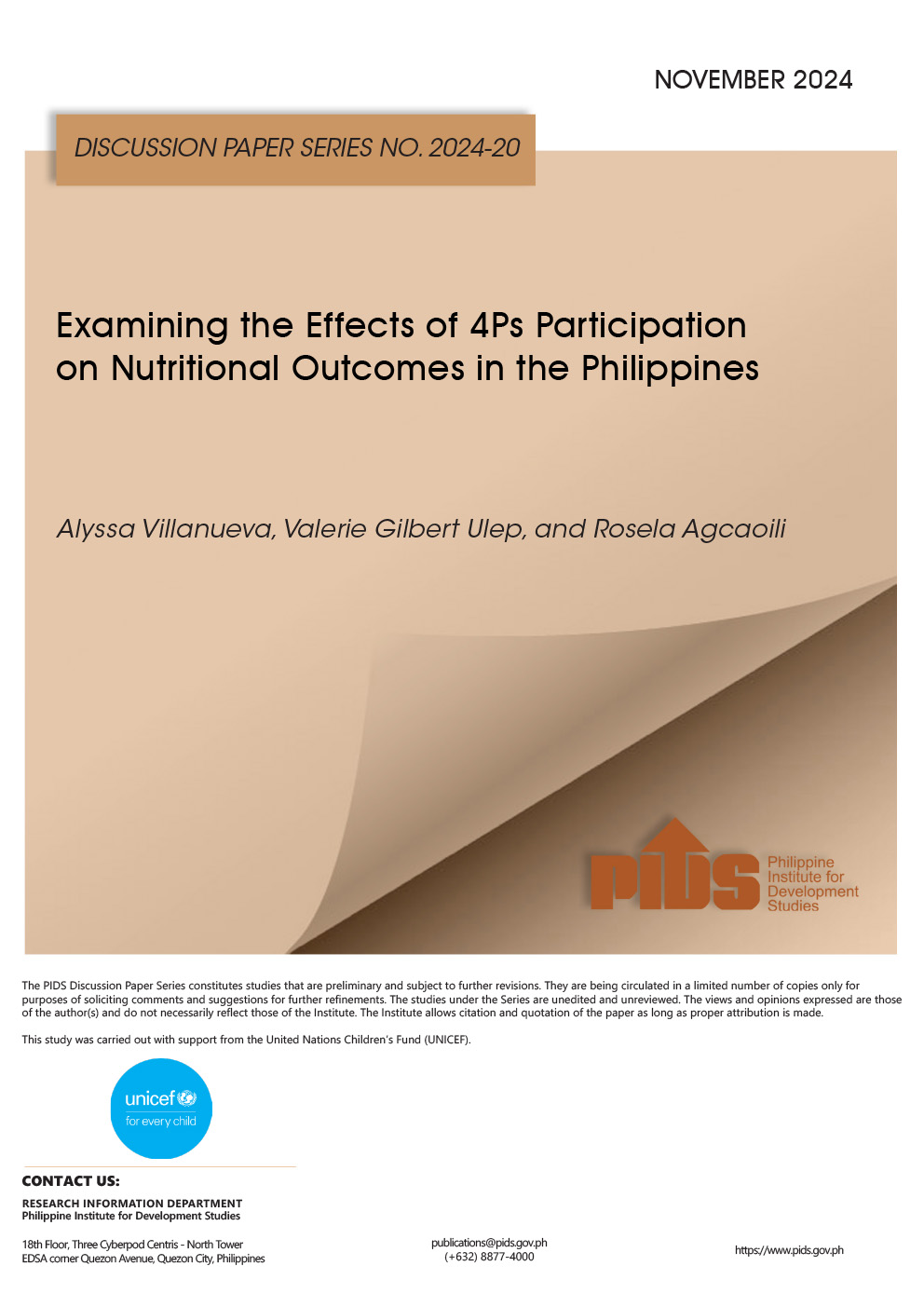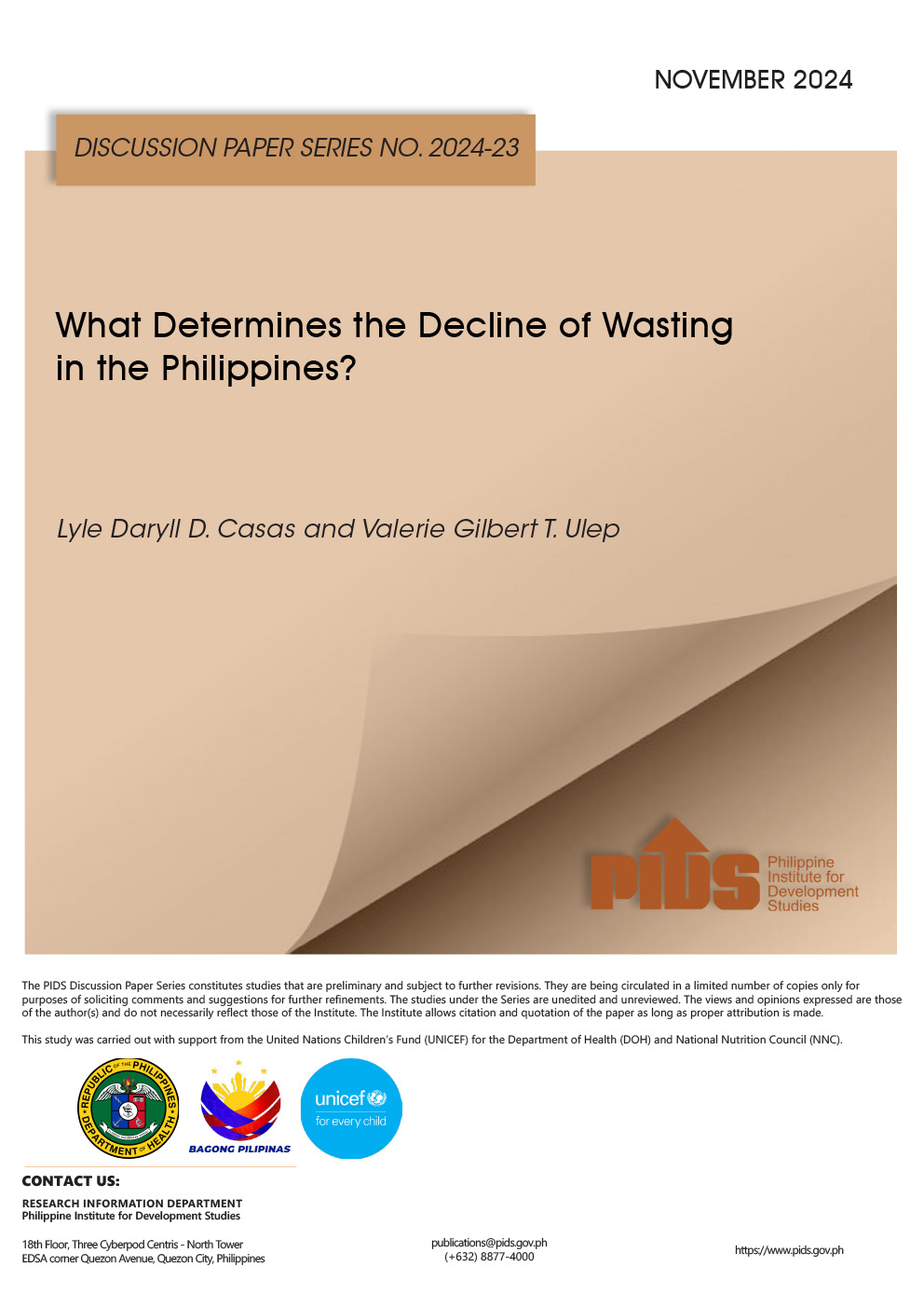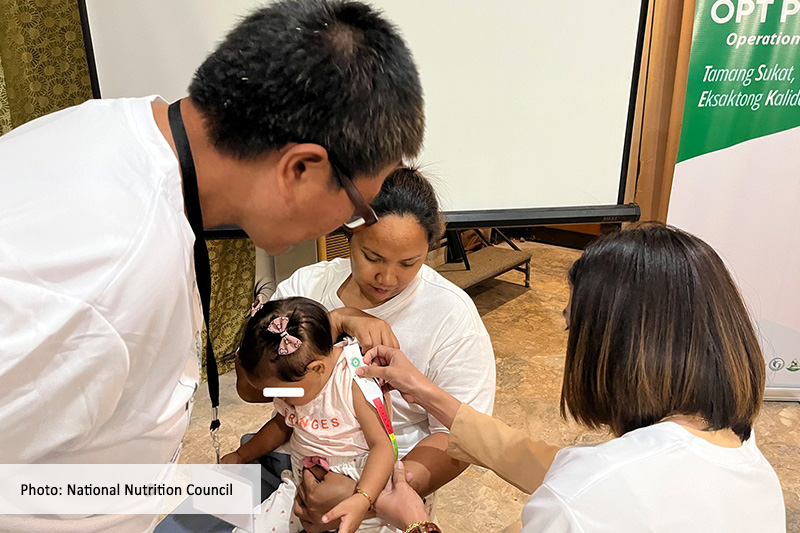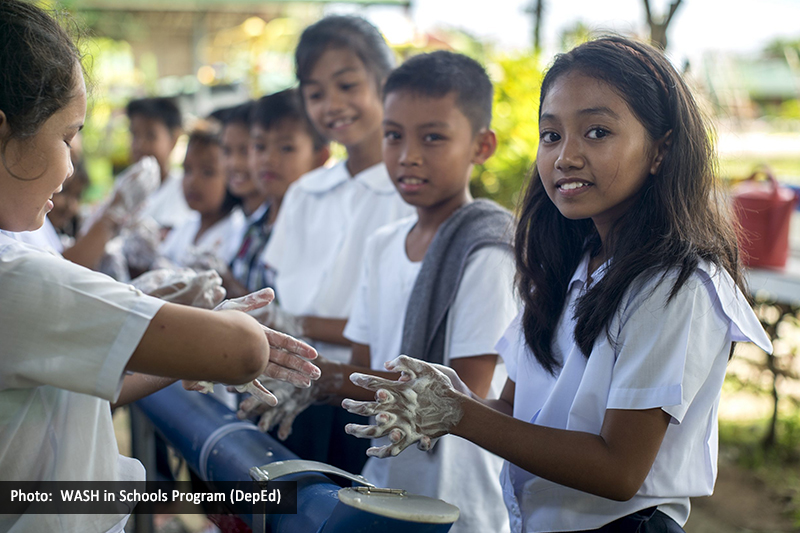The Complete Treatment Pack (COMPACK) program is a medicine access program designed to reach the poorest of the poor with complete treatment regimens for the top most common diseases in the country. The program aims to address the increasing morbidity and mortality due to these common diseases and high out-of-pocket spending in medicines and health services for majority of Filipinos. COMPACK also aims to expand the choices and ensure access and availability of affordable quality generics to other segments of the population otherwise not included in the Pantawid Pamilyang Pilipino Program (4Ps) of the national government. This study is a formative evaluation of the Department of Health (DOH) COMPACK program that also aims to analyze the impact of the access to medicines program.
The study utilized qualitative and quantitative research methods. The qualitative methods included key informant interviews, focus group discussions, and records review. The quantitative method included a survey done to determine the knowledge and attitude of the beneficiaries on the COMPACK program. The results of the qualitative study showed that the introduction of the COMPACK program flowed from the DOH regional offices to the local government units (LGUs) and that there were variable LGU processes for program adoption, integration to work programs and monitoring. The COMPACK medicines logistics management system however ensures that the medicines are delivered directly to the LGUs. The implementation of the COMPACK program depended a lot on the support of the LGU, capacity and efficiency of the rural health unit (RHU) staff, management skills of the LGU and RHU in weaving the COMPACK program into the existing programs and their working relationship with the DOH.

